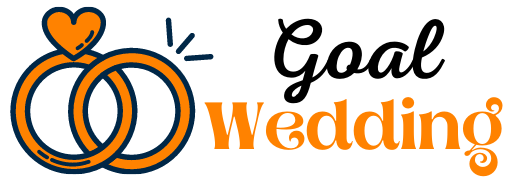The Ravengriim Leaks: Unveiling the Secrets of a Digital Whistleblower
-
Table of Contents
- The Ravengriim Leaks: Unveiling the Secrets of a Digital Whistleblower
- 1. Understanding the Ravengriim Leaks
- 1.1 The Motivation Behind the Leaks
- 1.2 The Scope and Impact of the Leaks
- 2. The Role of Whistleblowers in Society
- 3. Implications for Whistleblowers
- 3.1 Legal Protections
- 3.2 Ethical Dilemmas
- 3.3 Psychological Impact
- 4. Lessons for Organizations
- 4.1 Strengthening Internal Reporting Mechanisms
- 4.2 Protecting Whistleblowers
- 4.3 Embracing Transparency and Ethical Practices
- 5. Conclusion
- Q&A
- 1. Who is Ravengriim?
- 2. What motivated Ravengriim to leak the information?
- 3. What impact have the Ravengriim leaks had?
- 4. What are the implications for whistleblowers?
- 5. What lessons can organizations learn from the Ravengriim leaks?
- 6. How can whistleblowers be protected?
- 7. What benefits do whistleblowers bring to society?
In recent years, the world has witnessed a surge in whistleblowing incidents that have exposed corruption, misconduct, and unethical practices across various industries. One such incident that has captured the attention of the global community is the Ravengriim leaks. This article delves into the details of the Ravengriim leaks, explores their impact on society, and discusses the implications for whistleblowers and the organizations they expose.
1. Understanding the Ravengriim Leaks
The Ravengriim leaks refer to a series of confidential documents and information that were leaked by an anonymous whistleblower known as Ravengriim. The leaks encompass a wide range of topics, including government secrets, corporate malpractices, and personal data breaches. The sheer volume and sensitivity of the leaked information have made the Ravengriim leaks one of the most significant whistleblowing events in recent history.
1.1 The Motivation Behind the Leaks
While the true identity and motivations of Ravengriim remain unknown, the leaks are believed to be driven by a desire to expose wrongdoing and hold powerful entities accountable. Whistleblowers often act out of a sense of moral duty, seeking to shed light on hidden truths that can have far-reaching consequences for society.
1.2 The Scope and Impact of the Leaks
The Ravengriim leaks have had a profound impact on various sectors, including politics, finance, and technology. The leaked documents have revealed instances of government surveillance, corporate fraud, and privacy breaches, leading to public outrage and calls for reform. The leaks have also sparked investigations, legal battles, and policy changes in many countries.
2. The Role of Whistleblowers in Society
Whistleblowers play a crucial role in exposing corruption and ensuring transparency in both public and private sectors. Their actions often lead to significant societal benefits, such as:
- Preventing financial fraud and corporate misconduct
- Protecting the rights and privacy of individuals
- Strengthening democratic processes and accountability
- Encouraging ethical behavior and responsible governance
However, whistleblowers often face numerous challenges and risks when coming forward with sensitive information. They may encounter retaliation, legal repercussions, and personal hardships, making their decision to blow the whistle a courageous and selfless act.
3. Implications for Whistleblowers
The Ravengriim leaks have shed light on the challenges faced by whistleblowers and the need for better protection mechanisms. Some key implications for whistleblowers include:
3.1 Legal Protections
Whistleblower protection laws vary across jurisdictions, with some countries offering comprehensive legal safeguards, while others provide limited or no protection. The Ravengriim leaks have highlighted the importance of robust legal frameworks that shield whistleblowers from retaliation and ensure their anonymity.
3.2 Ethical Dilemmas
Whistleblowers often grapple with ethical dilemmas, such as the potential harm caused by the release of sensitive information versus the greater good achieved through exposing wrongdoing. The Ravengriim leaks have sparked debates about the boundaries of whistleblowing and the ethical responsibilities of those who possess sensitive information.
3.3 Psychological Impact
Whistleblowing can take a toll on the mental health and well-being of individuals. The fear of reprisals, social isolation, and the weight of carrying sensitive information can lead to stress, anxiety, and even depression. The Ravengriim leaks serve as a reminder of the psychological challenges faced by whistleblowers.
4. Lessons for Organizations
The Ravengriim leaks have significant implications for organizations implicated in the leaks and those seeking to prevent similar incidents. Some key lessons include:
4.1 Strengthening Internal Reporting Mechanisms
Organizations should establish robust internal reporting mechanisms that encourage employees to raise concerns internally before resorting to external whistleblowing. By fostering a culture of transparency and accountability, organizations can address issues proactively and prevent potential leaks.
4.2 Protecting Whistleblowers
Organizations must prioritize the protection of whistleblowers by implementing comprehensive whistleblower protection policies. This includes safeguarding their anonymity, providing legal support, and ensuring non-retaliation measures. By doing so, organizations can create an environment that encourages employees to come forward without fear of reprisals.
4.3 Embracing Transparency and Ethical Practices
The Ravengriim leaks serve as a wake-up call for organizations to prioritize transparency and ethical practices. By adopting robust governance frameworks, conducting regular audits, and promoting ethical behavior, organizations can mitigate the risk of misconduct and potential leaks.
5. Conclusion
The Ravengriim leaks have brought to the forefront the power and impact of whistleblowing in today’s society. They have exposed hidden truths, sparked public debates, and prompted calls for reform. The leaks serve as a reminder of the importance of protecting whistleblowers and the need for organizations to prioritize transparency and ethical practices.
Q&A
1. Who is Ravengriim?
Ravengriim is an anonymous whistleblower who leaked a series of confidential documents and information.
2. What motivated Ravengriim to leak the information?
The true motivations of Ravengriim remain unknown, but the leaks are believed to be driven by a desire to expose wrongdoing and hold powerful entities accountable.
3. What impact have the Ravengriim leaks had?
The leaks have had a profound impact on various sectors, leading to public outrage, investigations, legal battles, and policy changes.
4. What are the implications for whistleblowers?
The Ravengriim leaks highlight the need for better legal protections, ethical considerations, and support for the psychological well-being of whistleblowers.
5. What lessons can organizations learn from the Ravengriim leaks?
Organizations should strengthen internal reporting mechanisms, protect whistleblowers, and embrace transparency and ethical practices to prevent similar incidents.
6. How can whistleblowers be protected?
Whistleblowers can be protected through comprehensive legal frameworks, anonymous reporting channels, non-retaliation measures, and access to legal support.
7. What benefits do whistleblowers bring to society?
Whistleblowers play a crucial role in preventing fraud, protecting individuals’ rights, strengthening accountability, and encouraging ethical behavior.





